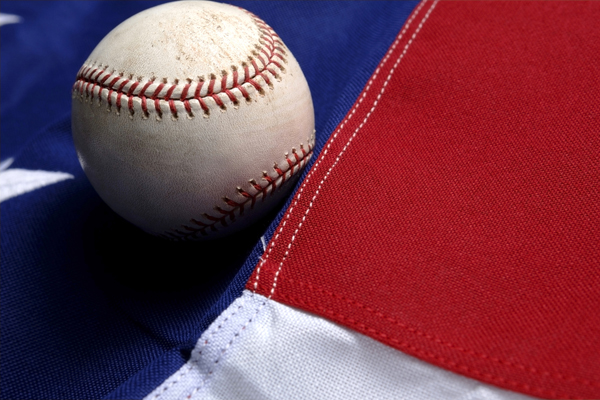Sports—a good political platform

In his new book Playing Tough: The World of Sports and Politics, Roger Abrams takes a critical, comprehensive, and entertaining look at the unique role sports have played in politics and history.
Abrams, the Richardson Professor of Law at Northeastern and a leader in the field of sports law, explained that the myriad connections between sports and politics is much more transparent today than in the past. But he noted that the intersection of the two fields dates back to the Roman Republic, when those running for positions of power sought favor with the voting masses through sports. Later Roman emperors would hold events for thousands of spectators to watch gladiators clash in the Coliseum.
“That was campaigning,” Abrams exclaimed. “In politics, being pro-sports has been a good platform, and it has been for 2,000 years.”
Perhaps no political institution in America is more closely connected to sports than the U.S. presidency, according to Abrams’ analysis. In 1910, William Howard Taft became the first U.S. president to throw out a first pitch at baseball game, played between the Washington Senators and Philadelphia Athletics. Many presidents have played golf, and others had successful sporting careers in college.
In his book, Abrams describes the role of sports in the lives of several U.S. presidents. Richard Nixon phoned in suggested plays to NFL teams; Herbert Hoover devised his own medicine ball tossing game on the White House grounds; and President Barack Obama shoots hoops during his spare time—often displaying his “sharp elbows” on the court.
Chapter after chapter, the book examines how sports have shaped history across the globe. Abrams’ writing also eloquently describes both positive and negative examples of how sports and politics have coalesced. Chapters explore Nelson Mandela’s nation-building efforts in South Africa through rugby and boxer Muhammad Ali’s brave refusal to fight in the Vietnam War. He also explains how Honduras and El Salvador engaged in a brutal four-day war in 1969 sparked by riots during World Cup-qualifier soccer matches, as well as the rabid nationalism of the 1936 Nazi Olympics that served as a transcendent moment when Adolf Hitler was seen as a statesman and built support for Nazi politics.
Over time, Abrams said, sports “have become part of the political currency.” He said this trend is clearly evident today in the negotiations between businessmen and politicians to build new sports stadiums and relocate franchises. For example, Abrams outlines the divisive negotiation and approval process to move the Montreal Expos franchise to Washington D.C., noting that the final public price tag for the Nationals Park was $693 million and as of 2012 had yet to achieve the economic development touted during the process.
“Sports converts to political capital because people who are in political positions of power can’t say no,” Abrams said.
The book also satisfied Abrams’ longtime desire to tackle a project that covers the high stakes of both sports and politics. Before attending law school, he studied political science and government as an undergraduate at Cornell University, and he’s now written six books examining various topics involved in the business, law, economics and social history of sports.
He hopes the book showcases the indelible connection between sports and politics in American society. “What I want to get across is that with sports, it’s more than a game. It’s part of what we are, and for some it’s the most important part,” Abrams said.
“If the White House played a softball game against a team from Capitol Hill every year, I wouldn’t be surprised it were carried live on ESPN,” he added. “That’s how much sports is part of who are as a society.”






